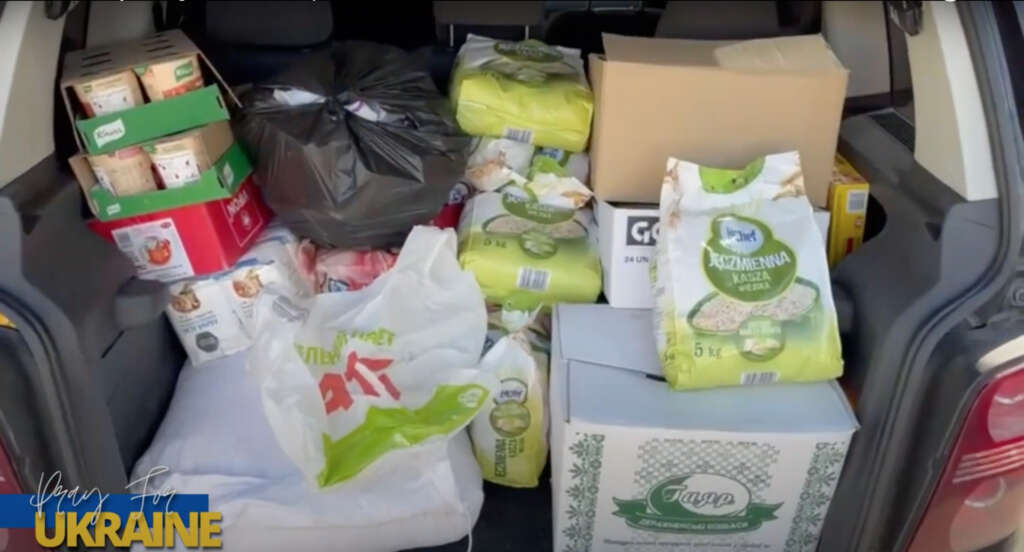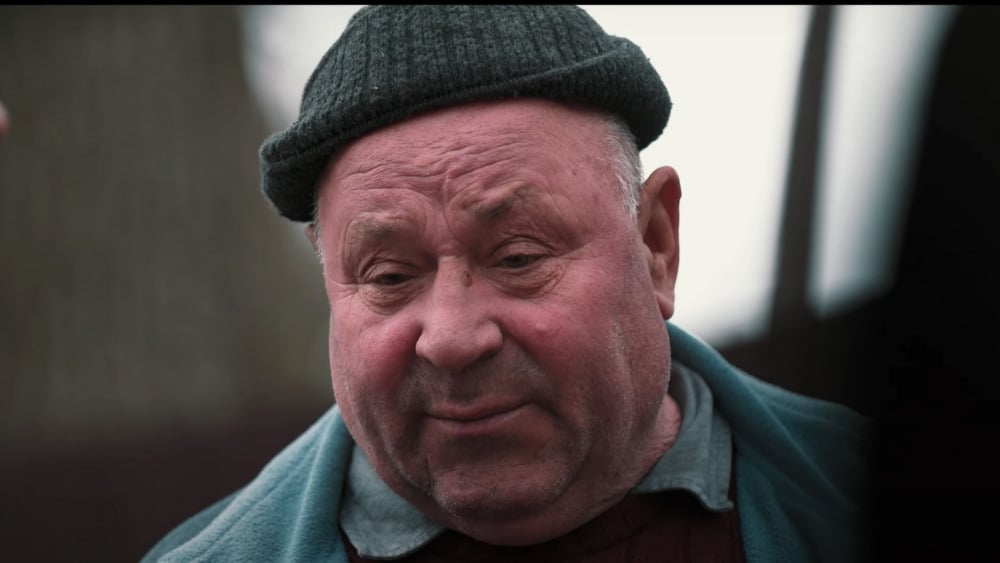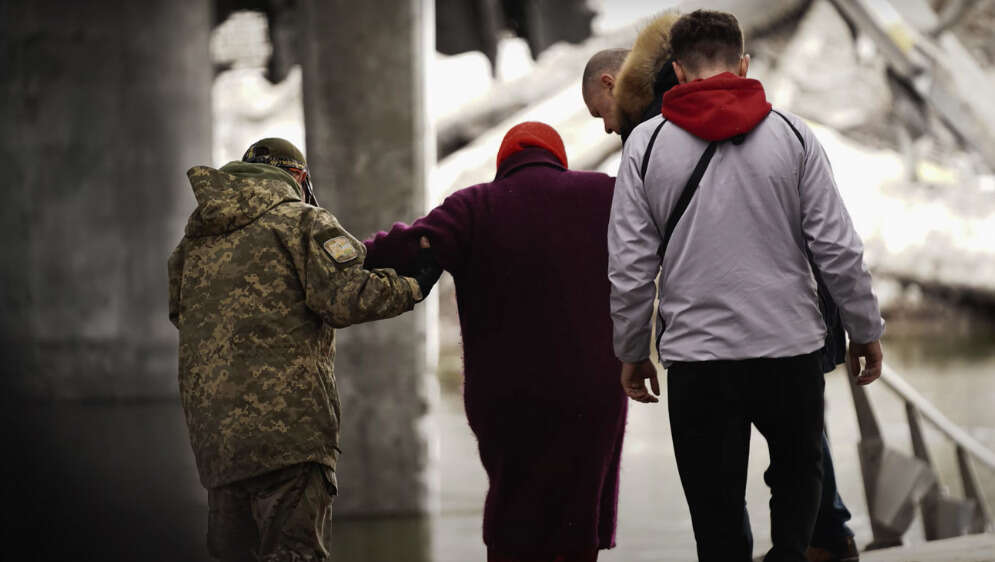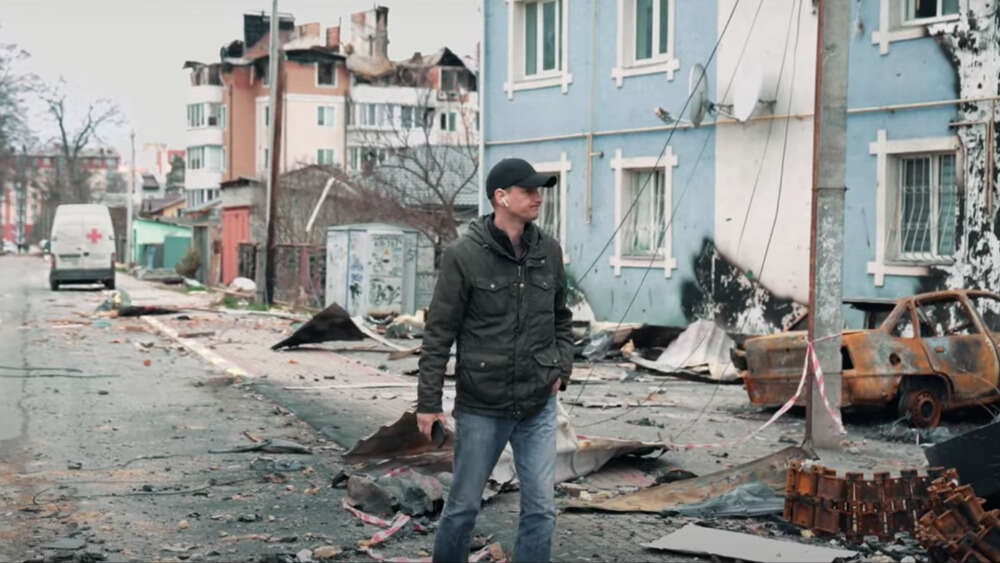A local church pastor in Ukraine records his daily routine on his smartphone.
“We’re heading out to a neighbouring village where we’ve got about ten families who escaped Kharkiv area and other places in the east, and we are going to deliver this humanitarian aid to them. They live in a school,” he reports.
“It’s not a lot,” he continues, showing his car boot full of food stores.
He then pans to the church’s storage area. “This is what we’ve got left,” says the pastor, rotating the camera to show a few mattresses, strollers and mobility frames for the elderly. Boxes of tinned food and stacks of nappies are dotted amidst the empty space.
“This is not much at all,” he comments.
Around 20 plastic bags are stacked uniformly with a mixture of goods.
“These are the bags we’re going to be distributing tomorrow at our church property. And this is what we’ve got left,” he says, motioning to a set of shelves stacked with the remaining goods. “So very soon we’re empty, I guess,” he adds.
His own family – including his wife, sister, sister-in-law and two nieces – travel in the car with him to drop off the supplies to the families living at the public school, which is now devoid of school life thanks to the ongoing invasion.
“People need housing. People need a place to temporarily stay. We’re working on this,” he concludes, promising to give more updates soon.

A Ukrainian pastor’s boot full of aid to deliver. Still from pastor’s video/ Used with permission.
This is one of the regular video updates this pastor shares with a Christian sports ministry network he is part of. The network is made up of an army of people on the ground in Ukraine doing just what he is – helping to take care of “every neighbourhood, every house and every family that has been in crisis.”
The network, which formed around 14 years ago, connects small groups of Christians across Ukraine and Eastern Europe who lead sports ministries in their local communities. Over the years, it’s grown to 218 locations and incorporates 20 church denominations, almost 60 Christian organisations and ministries, and more than 500 churches. Until now, the main purpose of the network has been to collaborate on their mission to share the gospel through sport.
But when Russia invaded Ukraine in February this year, this network pivoted to become a highly organised aid ministry.
The network has evacuated and helped almost 300,000 Ukrainians. Other members of the sports ministry network who live outside Ukraine also help accommodate and provide for evacuees, and source and organise supplies to be distributed by those inside Ukraine. Much of this is done through 119 “Help Centres” established in three states of Ukraine, which operate out of churches, gyms, offices, homes and schools. Over 12,000 people pass through these centres every day to collect food and basic needs and sometimes stay for a couple of nights in temporary accommodation.

The face of despair in Ukraine. Still from video made by Plus One/ Used with permission.
Another member of the sports ministry network is filmed standing amidst the rubble that was once his street in the capital city of Kyiv.
Again, it’s a video sent to the rest of the network to update them about the work being done on the ground. The video has been made by PlusOne – a sports evangelism and discipleship platform. It starkly captures the haunting stillness of this city in ruins.
This man is a church member, rather than a pastor, but he has long been a part of his local church’s sports ministry program.
Not long after Russia’s invasion – as bombs shook the home their family had moved into only a few months earlier – the man’s wife and two daughters went to live in Romania. He stayed behind in Ukraine with his two sons.
“We save their lives, provide them with food and can talk with them about hope.”
Before the invasion, the eldest son and his wife were planning to move into their own apartment which they were remodelling. His youngest son was planning to propose to his girlfriend, so the family was looking forward to organising a wedding.
Instead, their lives are now dedicated to the sports ministry network’s aid ‘army’.
The husband helps distribute aid – food, clothes and medical supplies – to churches and help centres across several local regions. The 20 help centres he serves, provide temporary accommodation to around 1500 people at a time. He also helps send supplies to 5o other help centres in western Ukraine and coordinates evacuating people from hot spots.
“We save their lives, provide them with food and can talk with them about hope,” he says.

Evacuees are assisted in Ukraine. Still from video made by Plus One/ Used with permission.
Meanwhile, his wife serves at a help centre on the Romania-Ukraine border, where she helps translate and provide aid, accommodation and transport to evacuees. She also helps get aid supplies into Ukraine – sending in 40 busloads over just a couple of days.
Both husband and wife also connect with other volunteers, churches and organisations who want to assist their network in serving the people of Ukraine.
Speaking about her work on the border, the woman says, “Now we face a great challenge with the psychological, emotional and spiritual state of our people because a lot of them have suffered a great trauma. Not only have they survived through it, it keeps on damaging them.”
She is preparing to train other volunteers to help lead a trauma healing course.
“Now we need to prepare as many as we can leaders, the people who are able to help those who are going through these losses. Losses of their homes, places where they lived, losses of those dear to them. People of different scale, different level, live through loss and cannot do it alone, which is why we are taking an active part to prepare people for it, to cover this need.”
The video cuts to a shot of the help centre in Romania, where kids and parents enjoy a hot meal in safety. There are smiles all round. Thinking of these evacuees, the man sums up why his own family is willing to put themselves on the line to serve others: “These people feel love, care and hope through people who really sacrifice every day to show them that they have a future.”
Note: Names and other details have been withheld for security reasons.
Email This Story
Why not send this to a friend?


